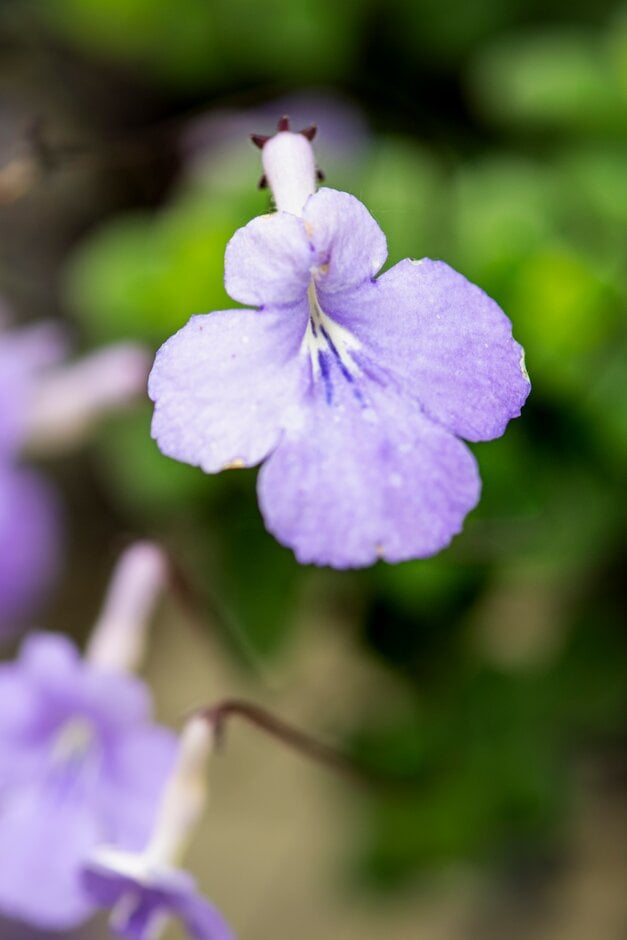Size
Ultimate height
0.1–0.5 metresTime to ultimate height
5–10 yearsUltimate spread
0.1–0.5 metresGrowing conditions
Moisture
Moist but well–drainedpH
Acid, Alkaline, NeutralColour & scent
| Stem | Flower | Foliage | Fruit | |
| Spring | Green | |||
|---|---|---|---|---|
| Summer | Green | |||
| Autumn | Green | |||
| Winter | Green |
Position
- Partial shade
Aspect
South–facing or East–facing
Exposure
Sheltered Hardiness
H1CBotanical details
- Family
- Gesneriaceae
- Native to GB / Ireland
- No
- Foliage
- Evergreen
- Habit
- Trailing
- Genus
Streptocarpus can be annuals, perennials or subshrubs, with usually wrinkled, lance-shaped to rounded leaves and clusters of tubular to trumpet-shaped flowers with 5 spreading lobes, often borne throughout the year
- Name status
Correct
- Plant range
- Kenya, Tanzania
How to grow
Cultivation
Grow as a houseplant in free-draining compost on an east or west-facing windowsill, or grow in a temperate or warm greenhouse in bright filtered light with shade from hot sun. Water sparingly as compost dries in winter and in the growing season water freely allowing compost to dry out between waterings; feed fortnightly with a high-potassium fertiliser. See Streptocarpus cultivation
Propagation
Propagate by seed or leaf cuttings
Suggested planting locations and garden types
- Patio and container plants
Pruning
No pruning required
Pests
May be susceptible to glasshouse leafhoppers, mealybugs, thrips, vine weevil and tarsonemid mite
Diseases
May be susceptible to grey moulds (botrytis) or powdery mildews
Love gardening
Sign up to receive regular gardening tips, inspiration, offers and more
View our Privacy Policy
Get involved
The Royal Horticultural Society is the UK’s leading gardening charity. We aim to enrich everyone’s life through plants, and make the UK a greener and more beautiful place.
